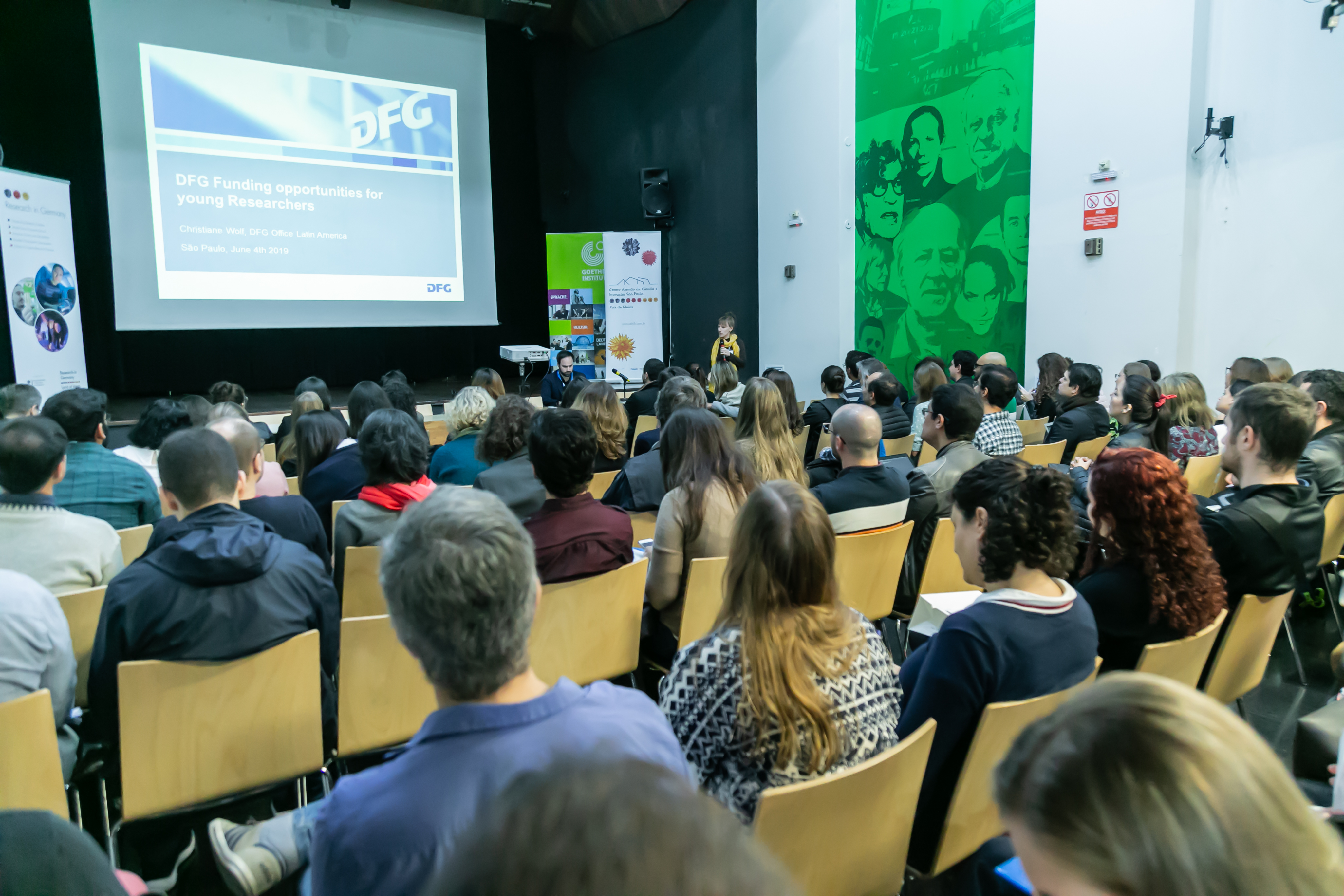Information events on postdoctoral opportunities in Germany
(18.06.19) On 4 and 6 June, some 200 early-career researchers from Brazil had the chance to learn more about postdoctoral opportunities in Germany at workshops in São Paulo and Belo Horizonte (Minas Gerais). Representatives from the Technical University of Munich (TUM), the University of Münster (WWU), the Free University of Berlin (FU Berlin), the Technical University of Berlin (TUB) and the University Alliance Ruhr (UA Ruhr) presented their facilities and funding opportunities for international researchers to participants.

A total of around 200 researchers took part in the two postdoctoral workshops
© Ricson Onodera
In addition to the universities, German funding institutions also took part in the event. Together with the German Academic Exchange Service and the Alexander von Humboldt Foundation, the DFG presented its funding programmes and finance opportunities for German-Brazilian research projects.
Researchers from the state of São Paulo can apply for funding from the DFG and its partner organisation FAPESP. These two institutions have been cooperating since 2006 and offer joint funding instruments for projects by researchers from Germany and the state of São Paulo – resources are available for individual grants all the way through to group projects. Proposals must be written jointly and submitted to both funding agencies for review. After approval, funding is issued based on the “matching funds” principle, whereby the DFG funds the German part of the project and FAPESP finances the Brazilian side.
The DFG has been working in the state of Minas Gerais since 2009 with the funding organisation FAPEMIG. The cooperation agreement was renewed in 2016. Proposals for joint projects with German partners can be submitted through calls published by FAPEMIG. If funding is then approved, the German project partner submits the same proposal to the DFG for review. Following approval by both sides, funding then once again takes place according to the “matching funds” principle.
Participants also received some useful advice for establishing contact with researchers in Germany – a basic requirement for a research visit and the funding application.
The GEPRIS database can be used to search various criteria including DFG-funded projects with current postdoctoral vacancies. There is also the GERiT portal, a search machine containing information on more than 25,000 universities and research institutions in Germany and including details of possible contacts in different disciplines.
Christiane Wolf, Programme Officer in the DFG Office Latin America, gave the participants some additional useful information: “As well as analysing publications and research work by potential contacts, you should also always consider the infrastructure in a specific location. Library facilities and other nearby research institutions can make a significant contribution to the success of research projects.”